PTL Closing Retreat - Part 2
Program Retrospective and Cowtopia Part 2
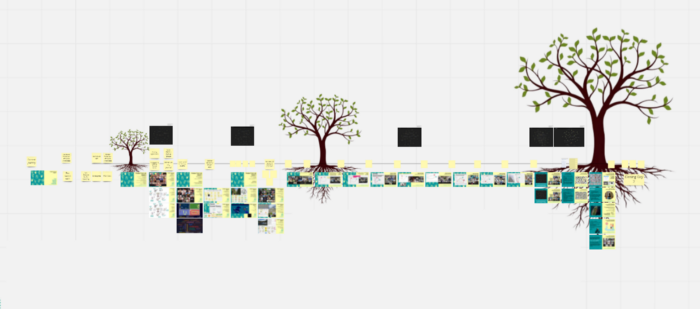
This is the end of PTL journey and therefore this final retreat is organised around following topics for the group reflecting back our 6+ months journey together:
- Fishbowl discussion on Psychological Wellbeing for Product Leaders
- Sharing on Product Tonic Community Journey
- Experiential learning to create space for difficult conversations
- Program retrospective
Psychological Wellbeing for Product Leaders
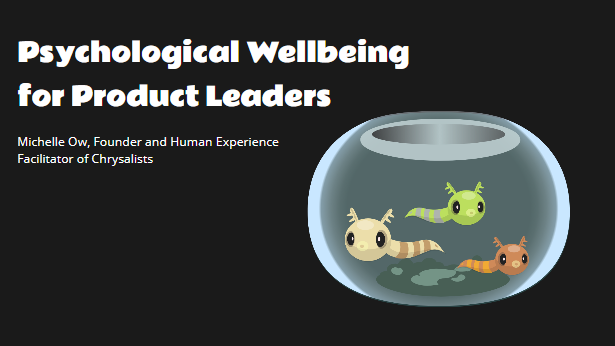
We started this session with the Body Scan exercise with Michelle Ow from Chrysalists to intentionally notice various parts of our body where we are holding tension for self-awareness, support and relaxation.
Some key takeaways from this exercise:
- noticing your body; physical debt (e.g. lack of sleep) can affect your emotion
- When I listen to my body, I become more conscious in how I react to my surroundings
- exercise calmness in the midst of challenging circumstance
Reflection of Product Tonic in Building Bridges for Product Leadership in Southeast Asia
We learnt that PTL program is very much inspired by creating awareness and capacity for deeper levels for change and learning from the book “Presence: An Exploration of Profound Change in People, Organisations and Society” described below:
“Complex, interdependent issues are increasingly shaping the context for strategy. Yet the pressures created by these issues tend to keep leaders in a continual “doing’ mode, with little or no time for reflection and real thinking. We believe that there is a greater need than ever for leaders to meet and genuinely “think together’ — the real meaning of dialogue. Only through creating such opportunities can there be any hope of building the shared understanding and coordinated innovative action”
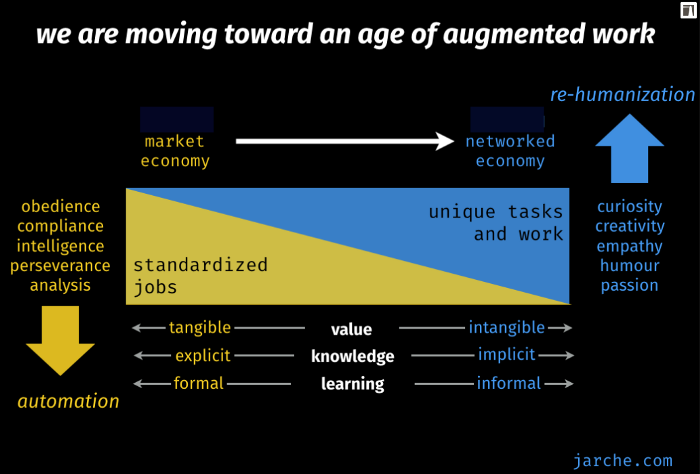
As we move toward an age of augmented work, there’s a shift from the market economy (with standardized jobs heading toward automation) to the networked economy (with unique, intangible tasks and work that require human skills like curiosity, creativity, empathy, etc.).
This is where lifelong learning through participation in programs like PTL adds value. It helps us move from a structured work team, action based & hierarchical environment into learning together, making sense of knowledge and testing alternatives. Afterwards, to further share knowledge through channels like professional/social networks and gain more diverse perspectives and feedback — i.e. Triple Loop Learning.
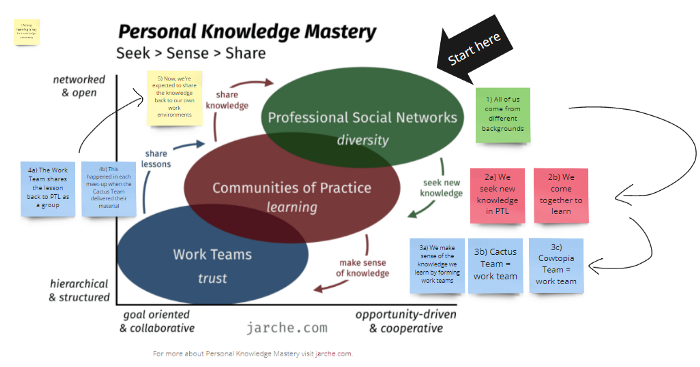
In the course of 6+ months, this is what has happened:
- The cohort come from different backgrounds and experiences — i.e. there’s diversity among us (“Professional Social Networks”)
- Product Tonic Lab (PTL) is the container for us to come together to learn. We seek new knowledge as “Communities of Practice”
- To make sense of the knowledge we learn (e.g. on the topics such as trust, resilience, mentorship, ownership, product-led culture, etc), we form Work Teams (i.e. Meetup / Cactus Team) where we can deepen our understanding.
- Then, the Work Team shares the lesson back to the PTL group. Each meet-up represents an opportunity for each Work Team to design and influence change in the group. And, this allows the group to reflect and identify our own learning edge.
- As we wrap up our PTL journey, the expectation is now for us — as a collective and an individual — to share the knowledge back to our own work environments.
Why we’re here — What brings PTL community together
While there are many communities of practices and options for learning we can choose from — the motivation and relationship for participation are often transactional in nature i.e. focused on “What can help sharpen my skills” for young/junior professionals and “What is next for me” for busy/senior professionals. It makes sustaining a community for long term challenging as both groups will start to drift apart once career/life events happen or members get what they want.
This brought realisation of the importance of creating space for co-creation by bringing societal problems that require dialogue and co-generative actions for both groups to work together and sustain their energy for the learning to truly become meaningful.
The Product Tonic group was subsequently established with following purpose:
- Support a safe environment where we can share, ask questions and collaborate on product, team, organisation topics
- Forge meaningful relationships in the network and help each other grow in their life and career
The outcome that PTL community seek to achieve
In terms of making an impact, proceeds from PTL contribute toward providing quality education for the Baan Dada community at the Myanmar border. The hope from this example is that participants of PTL programs would apply our skills & expertise in product and leadership into areas that need dialogue or people don’t pay attention to.
At the end of the day, it helps to know how to create space for difficult conversations in topics surrounding wicked problems and sustainable development goals: no poverty, zero hunger, good health and well-being, quality education, gender equality, etc.
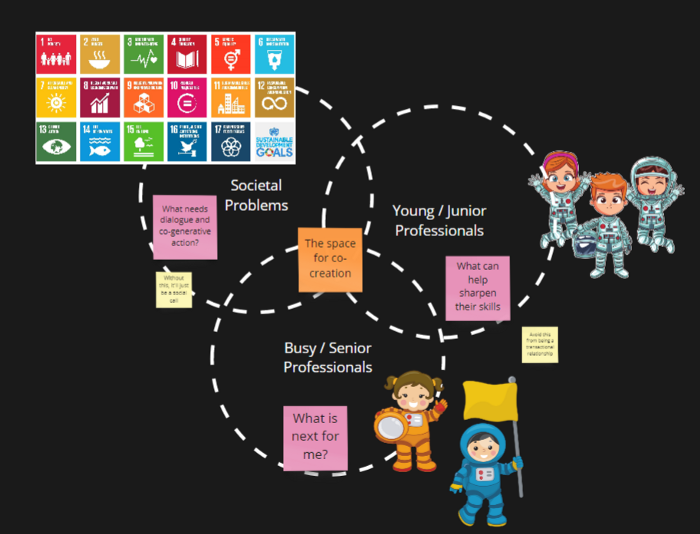
Cowtopia Part 2 is an example of how we can create such space. During the exercise, we observed:
- While difficult topics might lead to difficult conversations and confusion…it also encourages us to discover new insights:
- In the midst of chaos, considerations of feelings & concerns can get brushed aside;
- Being comfortable with discomfort is necessary.
- Leader plays a crucial role in the discussion: they set the initial tone, their leadership style and power can influence emotion in the team, etc.
- There is no such thing as ‘too big to handle’ problem when you have a group of committed people.

Never doubt that a small group of thoughtful, committed citizens can change the world: indeed, it’s the only thing that ever has.” — Margaret Mead, anthropologist
Retrospective
During this part, we reflect on significant events over the course of the program/engagement, arriving at a group understanding of lessons learned, and identifying executable action items.
- Gather Data using methods like 6 thinking hats:
- [GOOD] : “Working on this program was good because …”;
- [BAD] : “Working on this program was bad because …”;
- [BETTER] : “Working on this program could have been better if …”;
- [BEST] : “Working on this program gave us a chance to do some of our best work, such as …”
- Generate Insight
- Decide What to Do
Some notable key feedback from PTL Cohort 1 Program:
[GOOD — Things that work well]
- Opportunity to learn with one another — Hearing others stories, perspective and growth from different experiences, region, cultures and even language
- Go out of comfort zone, practice things that I don’t really do much
- Enhance confidence level to discuss virtually with other leader across the region
- Space to reflect (on my trajectory, my output/outcome to my environment; value, purpose, life, meaning) and distill learnings
- Have longer time to interact, get to know and build relationship & trust as cohort
- Experimenting with different ways to have dialogue — fishbowl, circle way, etc.
- Great opportunity to struggle together during meetups
[BAD — Things that pose challenges]
- Challenge to track milestones or learning progress; Confusing at the start but got better over time — Learning style was challenging and took some getting used to, especially if coming into the session with the expectation having “structured” sessions on topics we wanted to learn
- Prompts/topics are mentally taxing at times — necessary conversations that I wish I could have prepared (in advance) for better (dialogue)
- Self leading — meaning you rely on yourself to get all of the information needed. Putting in more time for digesting all the input and reflecting
- Time and long commitment period — Taking much more energy that expected to see through the program
[BEST — Valuable takeaways]
- Eye-opener and gaining new perspective on various topics
- Meet new people, learn new ways and tools to facilitate. Get to see in person how everyone else is lost/confused and just doing whatever they can
- Being empowered with tools to teach without being a deemed EXPERT in it
- Learning self and others thru fun engaging facilitation — Becoming more aware about self
- New methods of facilitation and learning how to facilitate better
- (Practice) Commitment, self-discipline, resilience, persistence
- Using principles of product management outside of “product management work” — in self, in orgs
- Making connections with product peers & mentors over prolonged period
- Strong team work for meetup
Concluding Notes
PTL has been enriching journey of discovery — Expect lots of efforts, commitment, and resilience to pull it through. It is not a program for learning instant product skills. Instead, PTL offers safe space for participants to experience, experiment and nurture deep collaboration and meaningful dialogue. Participants well being, coaching and support by PTL Facilitors (Michael, Mul and Ignas) have been fantastic!
Throughout the program, there are many awesome creativity, surprises and laughters from meetup workshops organised by all cactus teams (Note: The bar is getting higher for each subsequent meetup!). It is inspiring to experience care and commitment from each teams in preparing materials to bring the most relevant learning experience for the cohort. A big appreciation especially to my cactus team member (Y and R) who embrace the challenge and journey through many nights and weekends of preparations. Looking back, those are moments that I cherished the most!
Lastly, this is the program that provide you with a mentor that you can reach out and talk to. I didn’t mention much in this aspect of PTL mentorship here — but it is one of the most valuable you could ever gain from this program. I was fortunate to be able to connect and have deep conversations some of the mentors.
Drop me a note or reach out to Michael Ong if you’re interested to find out more and see if this is the right program for you. I’m glad I did!